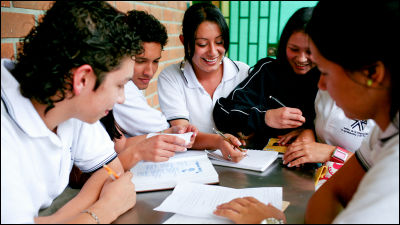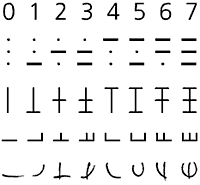Where does Japan rank? 'TIMSS 2023' international survey report on mathematics and science covering 64 countries

The International Society for the Assessment of Educational Achievement, headquartered in the Netherlands, has released the Trends in International Mathematics and Science Study (TIMSS) 2023, which surveyed the academic ability of children in the same grade in a total of 64 countries. It has become clear which countries' children achieved high scores.
International Results - TIMSS 2023
TIMSS2023 Results (Summary)
(PDF file) https://www.nier.go.jp/timss/2023/gaiyou.pdf
The survey targeted fourth graders (fourth grade elementary school students in Japan) and eighth graders (second grade junior high school students in Japan), with data collected from 359,098 fourth graders from 12,016 schools in 59 countries and 297,262 eighth graders from 8,786 schools in 44 countries. In Japan, data from 3,875 fourth graders from 141 schools and 3,905 second graders from 133 schools were randomly selected.
Below are scores for 4th grade math scores broken down by country. From top left to bottom right, the countries are listed in order of best results. First place is Singapore with 615 points, second Taiwan with 607 points, and third South Korea with 594 points. Japan came in fifth with 591 points. These scores were calculated based on the average score of 500 points in the 1995 survey.

Looking at performance by gender, the majority of countries showed a difference in performance, with boys scoring higher on average in 40 countries, no difference in 17 countries and only one country where girls scored higher on average.

Among second-year junior high school students, the top three - Singapore, Taiwan, and South Korea - remained unchanged, while Japan moved up to fourth place.

In terms of gender, boys had an advantage in almost half of the countries.

According to a document summarizing the outline of TIMSS 2023 prepared by the Ministry of Education, Culture, Sports, Science and Technology and the National Institute for Educational Policy Research, 'Japan's average scores in arithmetic and mathematics continue to be among the highest in the world. Compared to the previous survey, there has been no significant change in average scores in Japan for both elementary and junior high schools. The average rate of correct answers to the same questions as in the previous survey is at the same level.'
The survey revealed the following issues:

According to the TIMSS 2023 materials, the following questions were asked in English-speaking countries:
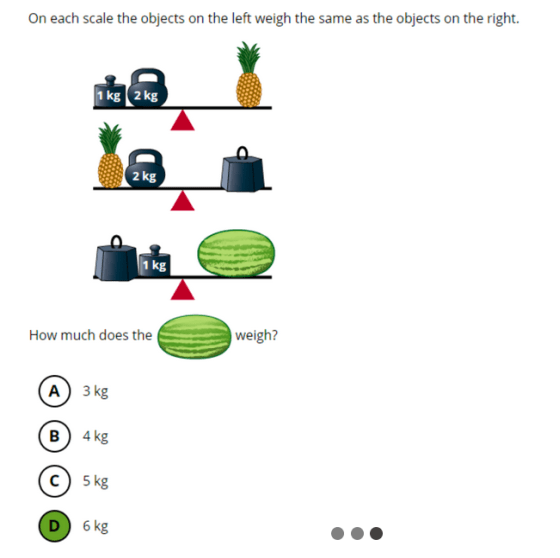
When scores are classified in increments of 75 points, and in the case of fourth grade mathematics, scores are assessed as follows: '625 points: Able to relate concepts and expressions in a wide range of contexts,' '550 points: Able to demonstrate mathematical knowledge and relate expressions in simple situations,' and '475 points: Has a basic understanding of mathematics,' the results show that there are more children in the high scoring tier in Japan than the international median, and that the number of such children is increasing slightly each year.

In fourth grade science, the top spots were drawn from Singapore, South Korea, Taiwan, Turkey, and England, with Japan coming in sixth place.
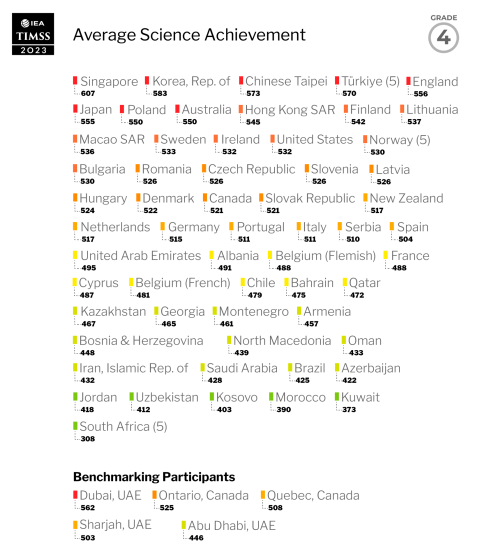
In terms of gender, it is shown that there are many countries where there is no difference between men and women.
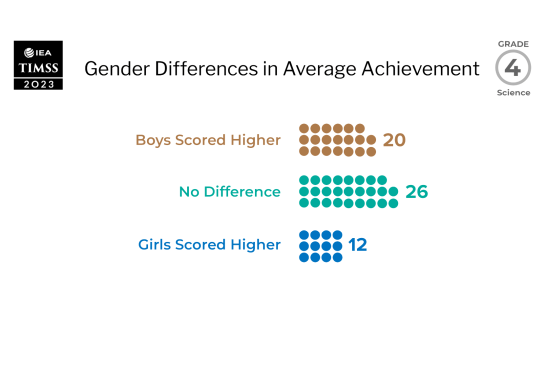
Japan ranked third for second-year junior high school students. The Ministry of Education, Culture, Sports, Science and Technology noted, 'Japan's average science scores continue to be among the best in the world. Compared to the previous survey, Japan's average scores for both elementary and junior high schools have dropped significantly. The average rate of correct answers to the same questions as in the previous survey is about the same.'
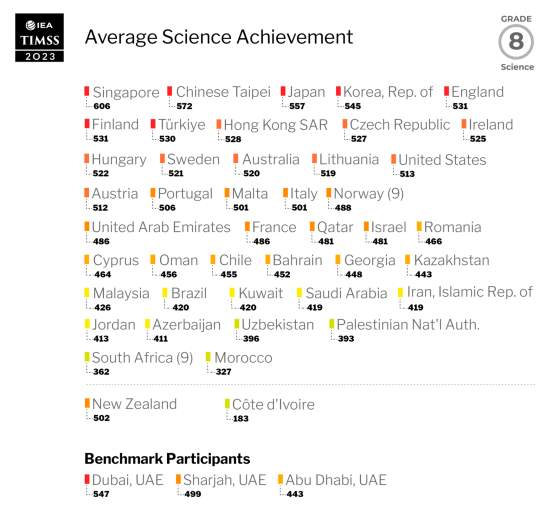
The results showed that even in the second year of junior high school, there was either no difference between boys and girls, or one gender was almost equally likely to have an advantage.
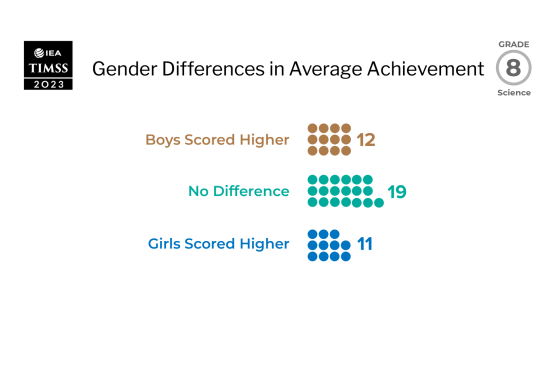
In Japan, the average scores of men are slightly higher in both arithmetic, mathematics, and science. On the other hand, in the National Academic Ability and Learning Status Survey led by the Ministry of Education, Culture, Sports, Science and Technology, the results of 2012, 2015, 2018, and 2022 are summarized as follows: 'In both arithmetic, mathematics, and science, girls have a higher average correct answer rate than boys, but there is no substantial difference between the average scores of boys and girls.'
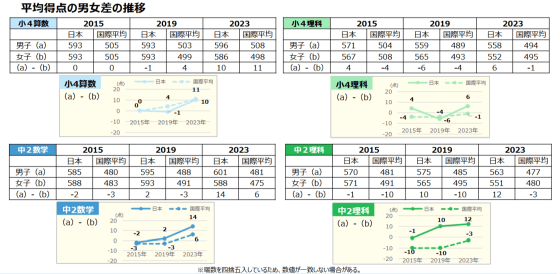
In the assessment using increments of 75 points, there has been a decrease in the number of high scorers compared to the previous survey.
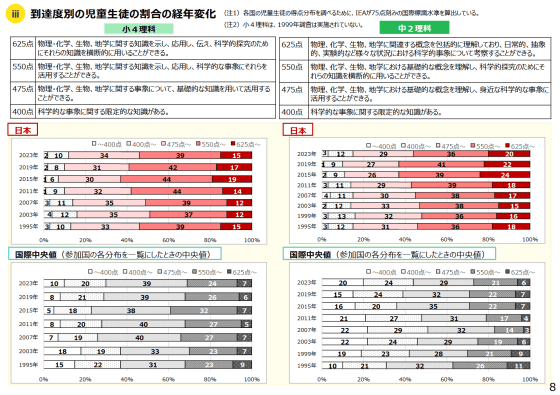
In addition, 88 newly created questions were asked in elementary schools and 109 questions in junior high schools (50% of the total) in the science section of TIMSS 2023. According to the Ministry of Education, Culture, Sports, Science and Technology, these new questions include questions about tropical and arid ecosystems that are unfamiliar to Japanese children and students, as well as questions that do not correspond to the learning period of Japanese children. In fact, the data from this survey showed that the newer the questions, the lower the correct answer rate was often below the international average, and the Ministry of Education, Culture, Sports, Science and Technology wrote, 'When analyzing the results of science, it is necessary to take such things into consideration.'
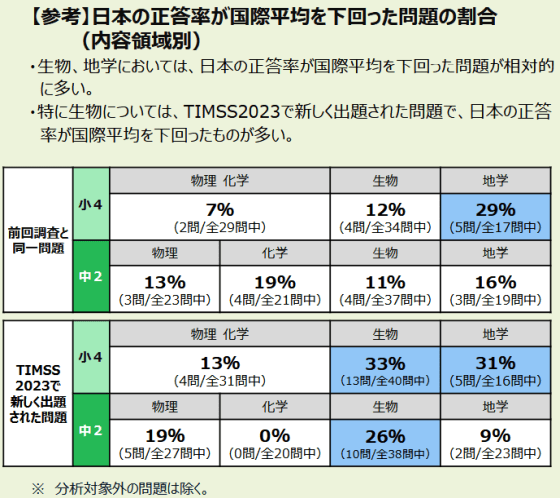
Data linking economic status and academic performance shows that higher socioeconomic status is associated with better academic performance.
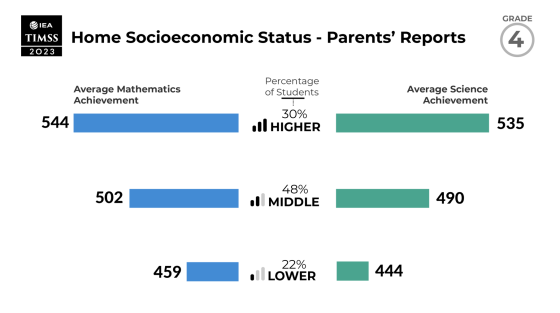
The same was true for the economic status of the schools, with children in wealthy schools performing better than those in poorer schools.
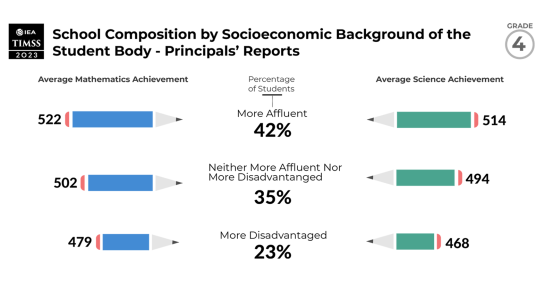
Additionally, children in schools that placed a very high emphasis on academic success had higher average grades than those in schools that placed a 'normal' or 'moderate' emphasis on academic success.
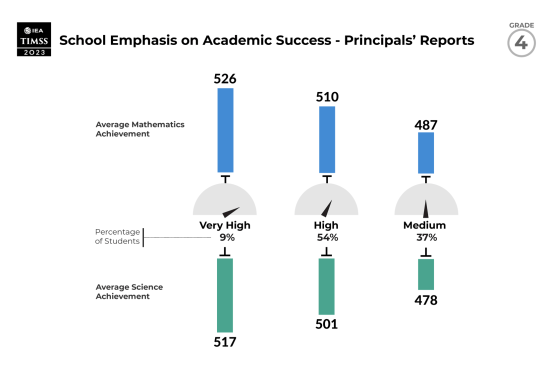
A survey on interest in arithmetic, mathematics, and science shows that the percentage of Japanese people (second-year junior high school students) who answered that 'studying mathematics/science is useful in daily life' is increasing from 2003 to 2023.

The percentage of people who answered that 'studying arithmetic and mathematics is fun' is on the rise in second-year junior high school students, but is still below the international average.
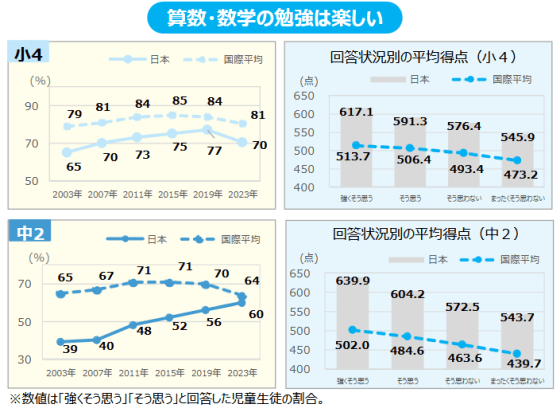
In science, the percentage of fourth-graders who answered that 'studying is fun' has consistently been higher than the international average since 2007.
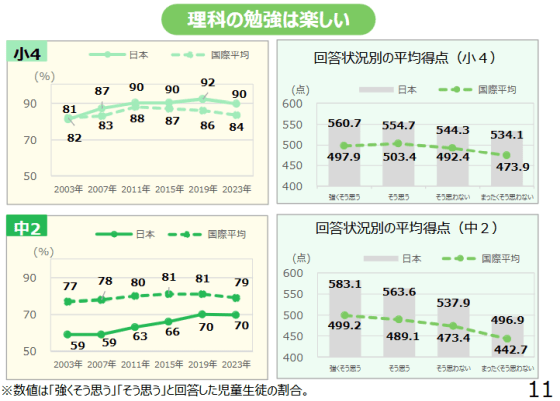
Regarding science, the TIMSS 2023 materials show that 'occasionally conducting experiments in class helps improve average fourth-graders' science grades more than either conducting experiments more frequently or not at all.'
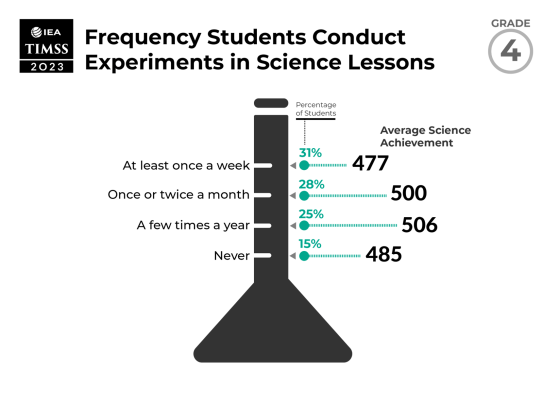
In this regard, it has been shown that the frequency with which Japanese children experiment is quite high compared to other countries.
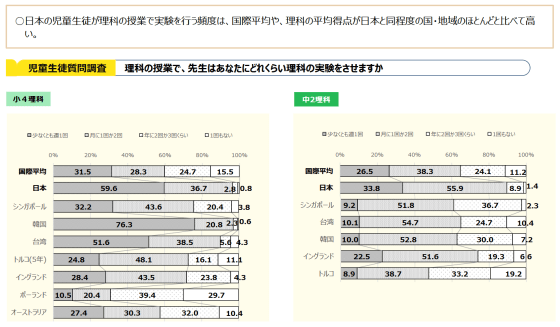
Additionally, boys are said to have a higher interest in science and mathematics subjects than girls.
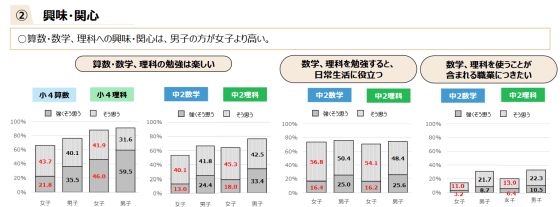
Related Posts:
in Posted by log1p_kr
